 Technology peripherals
Technology peripherals
 AI
AI
 Musk announced the news: Neuralink is undergoing human trials for the first time, which may help patients with ALS realize their wish to 'become Hawking in seconds'
Musk announced the news: Neuralink is undergoing human trials for the first time, which may help patients with ALS realize their wish to 'become Hawking in seconds'
Musk announced the news: Neuralink is undergoing human trials for the first time, which may help patients with ALS realize their wish to 'become Hawking in seconds'
Neuralink, a company in Musk’s universe that develops “brain-computer interfaces,” announced today that it has officially begun recruiting human clinical trial subjects!
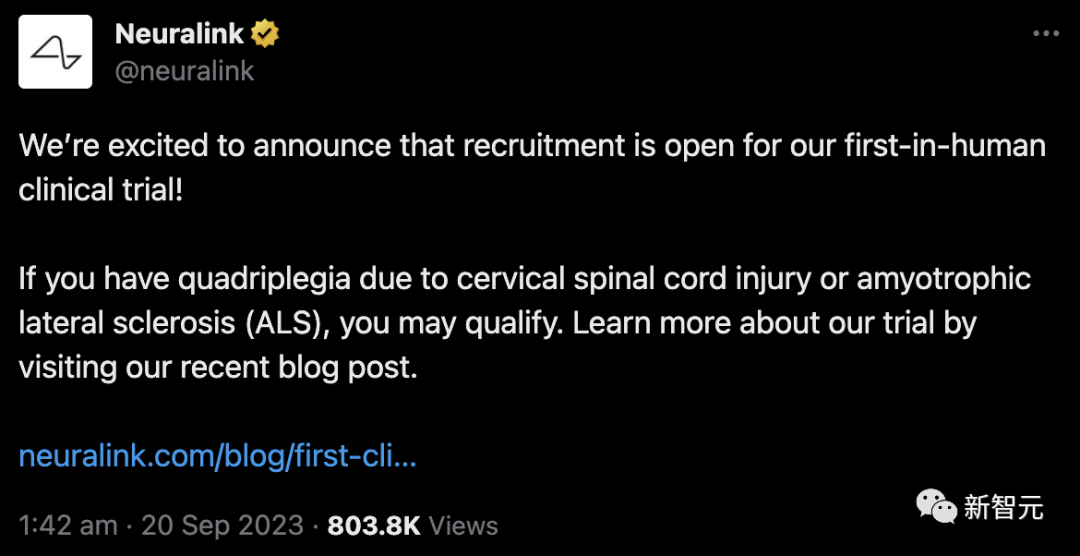
According to Neuralink’s official blog, they have passed the review committee and the hospital site has been approved
Neuralink’s research project is called PRIME (Precision Robotic Implantation Brain-Computer Interface), which is a medical device trial for a fully implantable wireless brain-computer interface (BCI)
The purpose of the trial is to evaluate the safety of Neuralink's implant (N1) and surgical robot (R1), and to evaluate the preliminary function of the brain-computer interface in helping paralyzed patients control external devices with their thoughts.
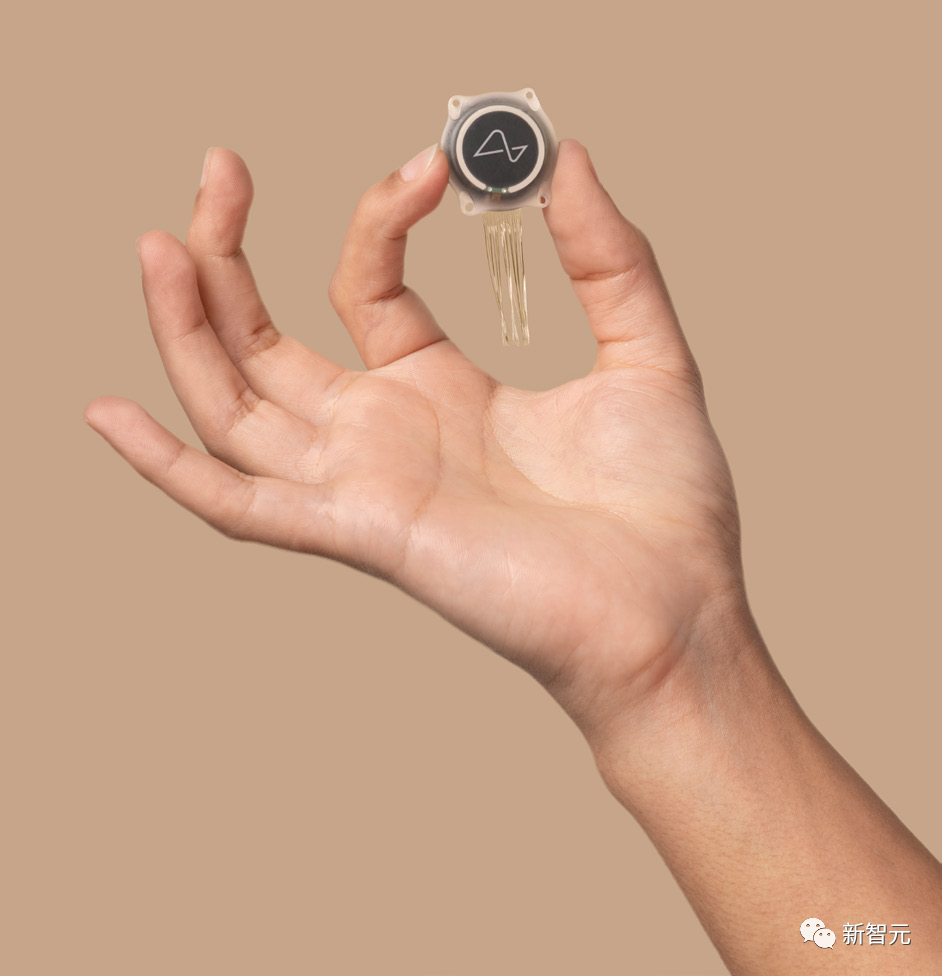
An important component of the brain-computer interface is the N1 implant
Study will use R1 The N1 implant's ultra-thin flexible wires are surgically implanted by a robot into the area of the brain that controls movement intentions.
Once implanted, the N1 implant will be hidden inside the brain and its purpose is to record brain signals and transmit them wirelessly to an application that decodes movement intentions. After rewriting: After the N1 implant is implanted in the brain, it will remain hidden. Its main function is to record brain signals and wirelessly transmit these signals to an application that decodes motor intentions
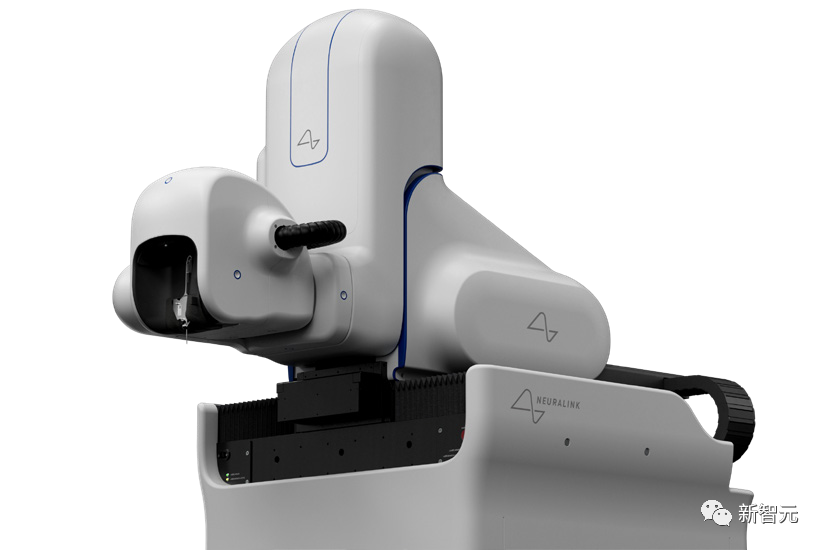
Surgical robot R1
In this way, the primary goal of brain-computer interface is to allow people to control the computer cursor with just their thoughts. or keyboard.
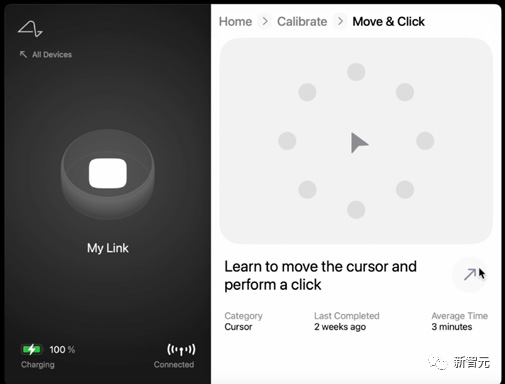
#The first batch of human trial subjects recruited are those who have suffered from cervical spine injuries or amyotrophic lateral sclerosis (ALS: also known as "amyotrophic lateral sclerosis"). Patients with quadriplegia caused by "frozen syndrome")
Through the brain-computer interface, after the experiment is successful, patients with total paralysis may acquire abilities similar to Professor Hawking's during his lifetime, and can communicate with the outside world. The world communicates
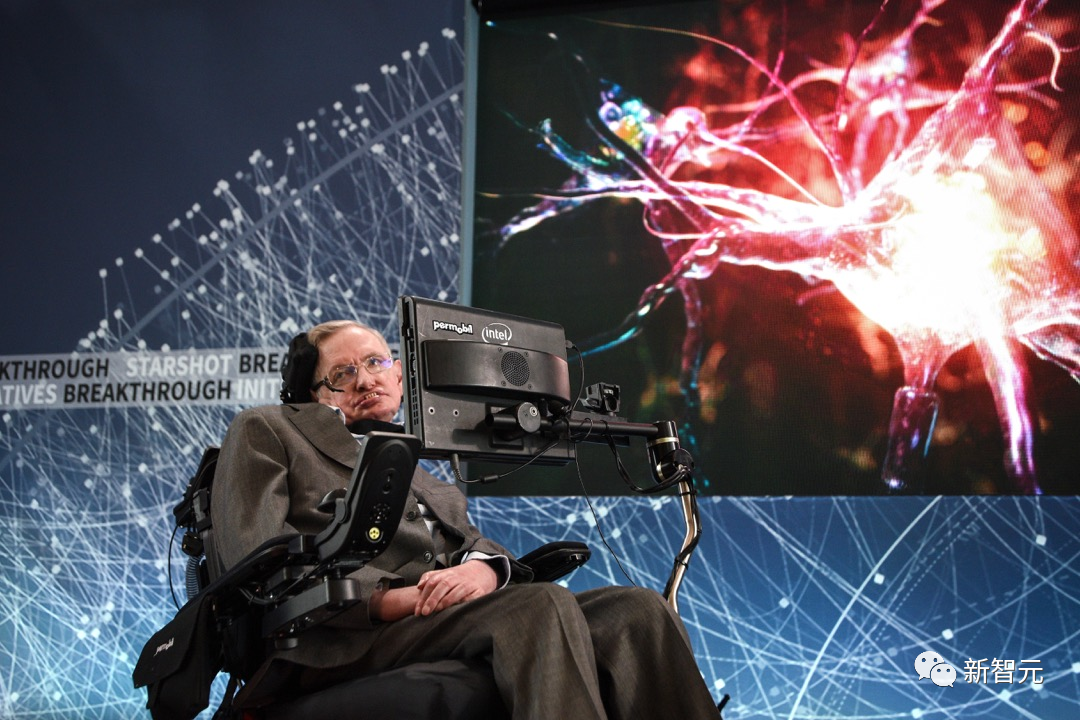
Device overview
Brain-computer interface decodes intended movements from brain activity signals, allowing humans to control various external devices such as computers and mobile phones with their thoughts.
This experiment is to implant a device called N1 into the brain to analyze the brain activity of motion signals
This implant The body is mainly composed of 4 parts: biological shell, wireless rechargeable battery, chip, neural connection
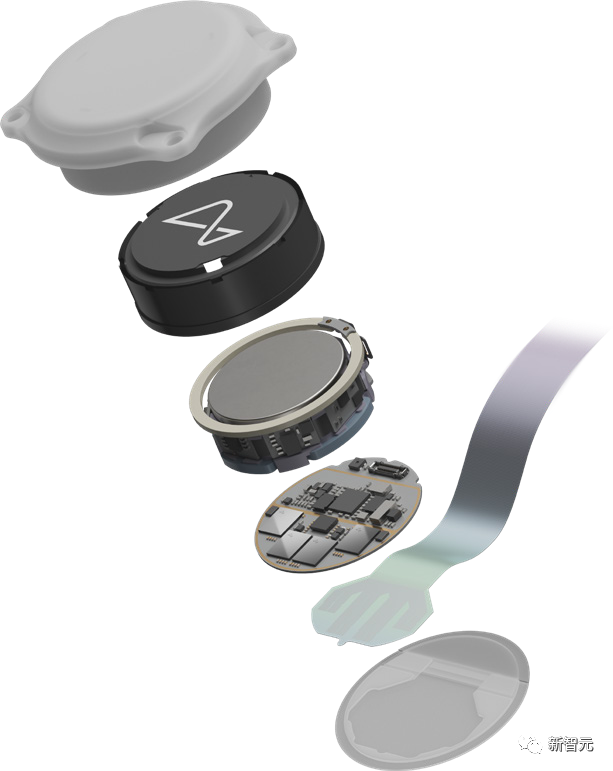
Biological shell: N1 implant is encapsulated In a biological shell, it can withstand pressure many times more severe than the harsh environment inside the human body, ensuring that the internal components can operate stably for a long time
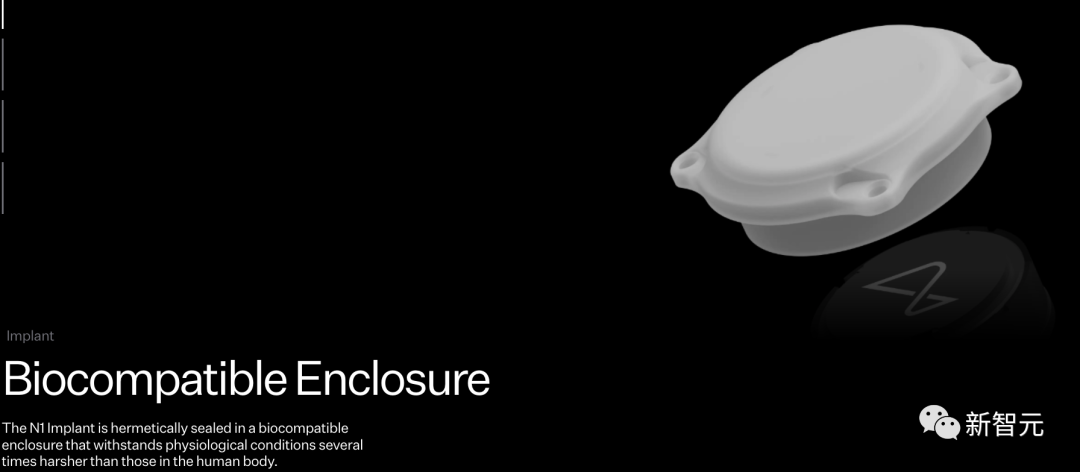
Wireless Rechargeable battery: Implant N1 is powered by a compact wireless rechargeable battery that can be easily charged from outside the body.
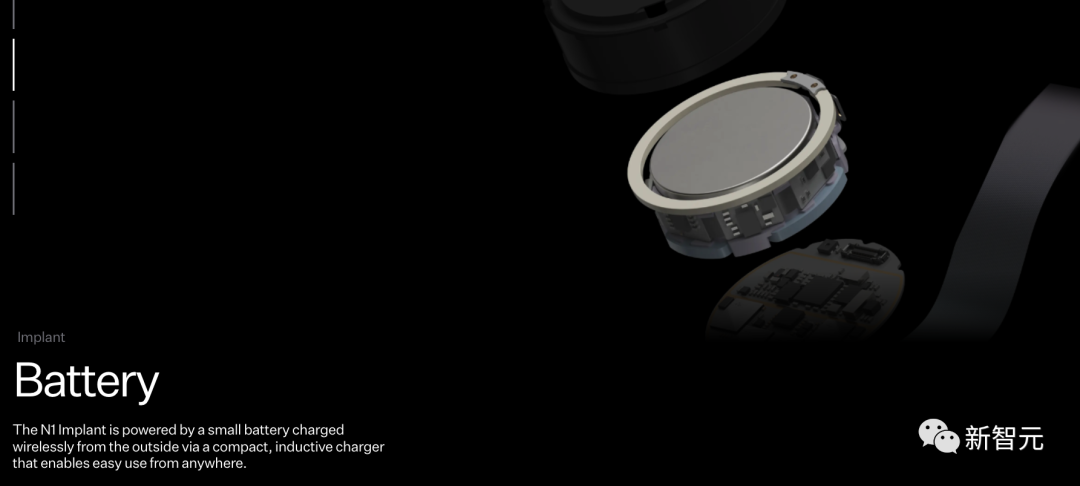
Chips and other electronic components: The core of the implant N1 is a customized chip system that can decode the brain’s neural signals and wirelessly transmit the signals to applications outside the body. Applications convert signals into specific actions and intentions
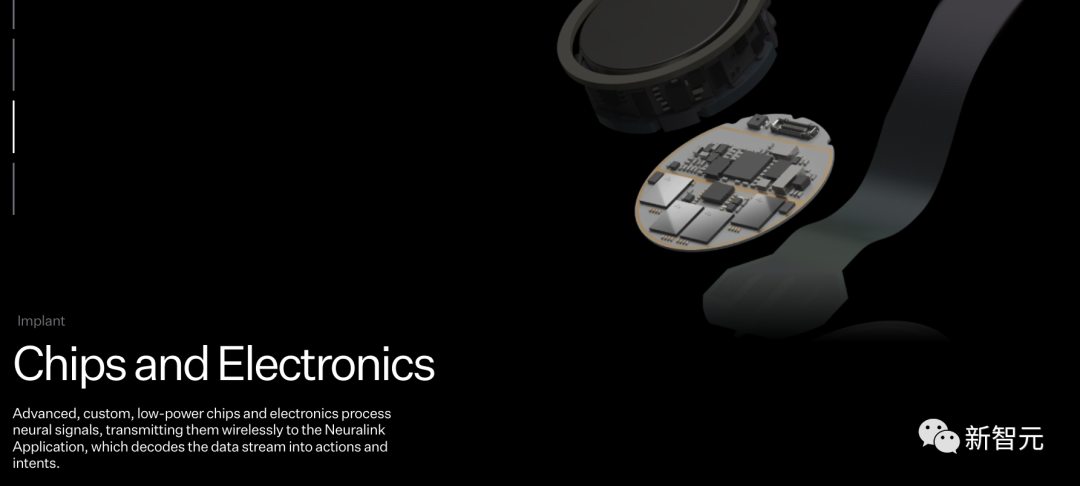
Neural connections: Implant N1 passes through 1024 electrodes record neural activity. These extremely flexible, ultra-thin nerve connections, only 1/40 the thickness of a human hair, are key to minimizing implant damage.
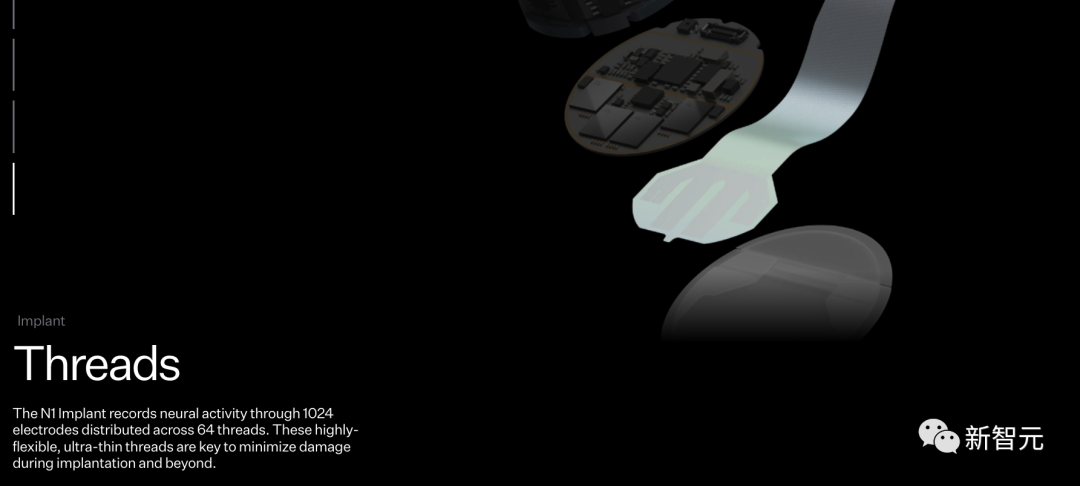
Robot R1
The implantation surgery of the implant N1 will be performed by the implantation robot R1 Finish. R1 consists of 3 parts: base, machine head, and needle.
Because the nerve connections of the implant are very thin, it cannot be operated by human hands. Therefore, a specialized R1 surgical robot is required to complete the implantation.
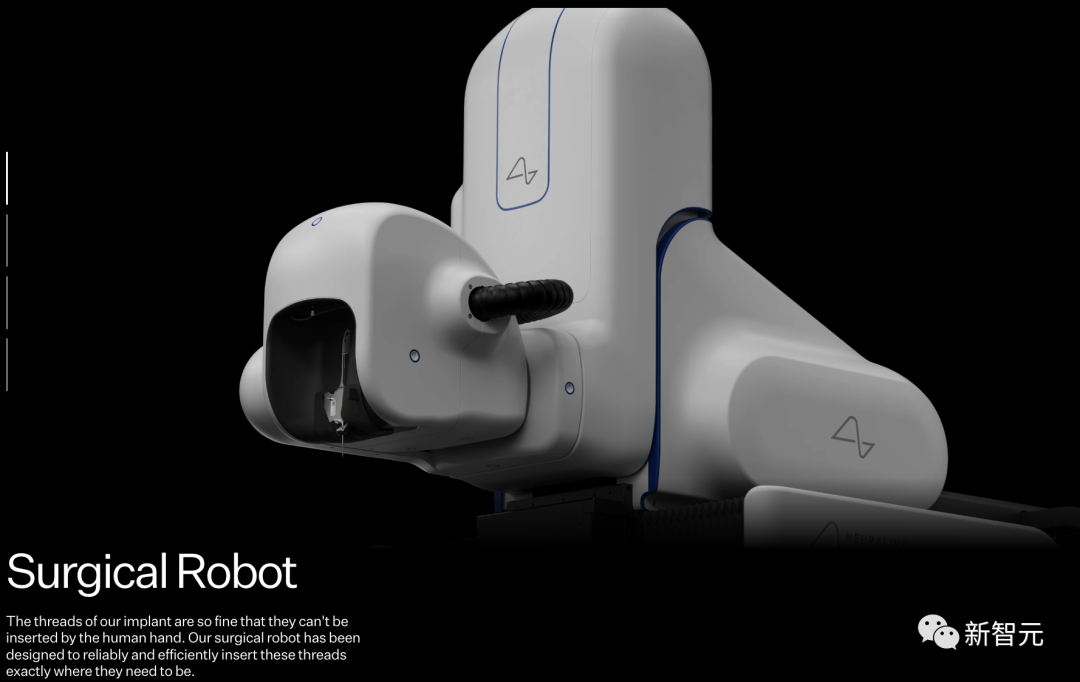
The function of the base is to provide three-dimensional movement and fixation for the machine head and needle
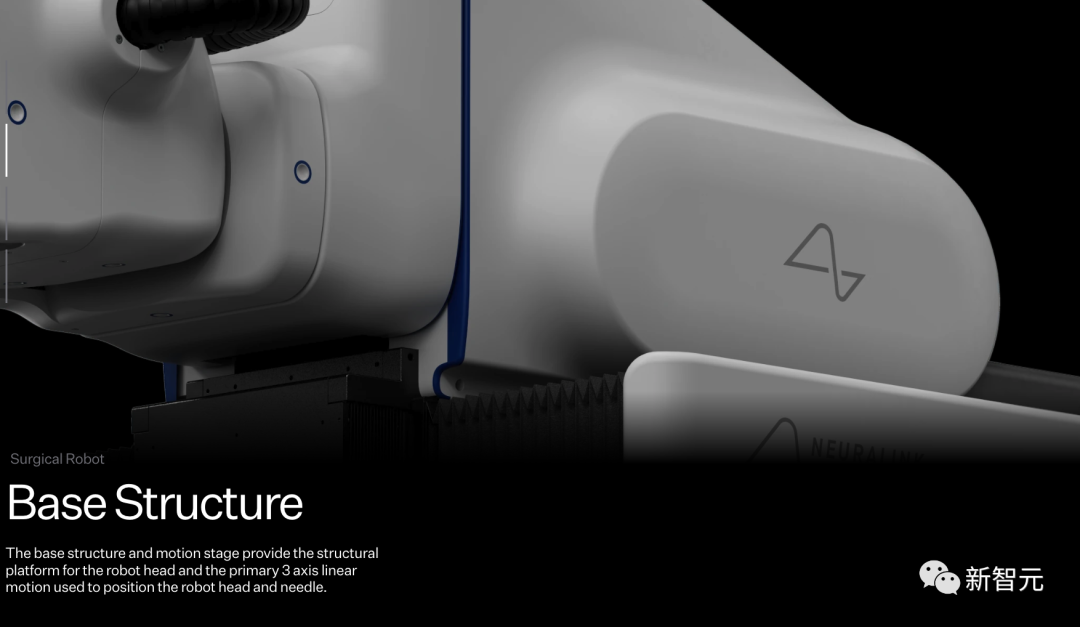
Machine head: Contains 5 camera systems composed of sensors and lenses, and is also equipped with the lens part of the optical coherence tomography (OCT) system.
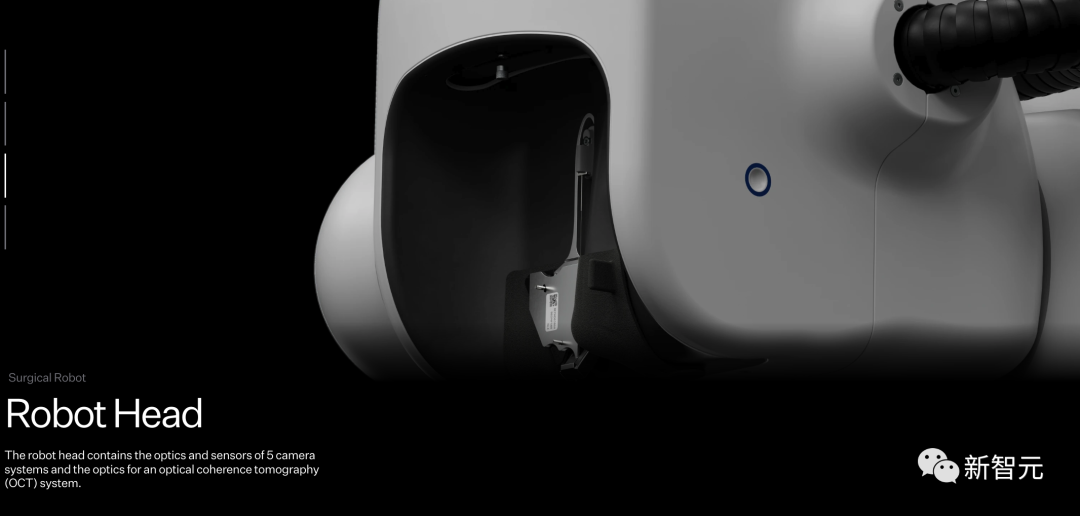
Needle: A needle thinner than a hair, used to grab, move, and place nerve connections.
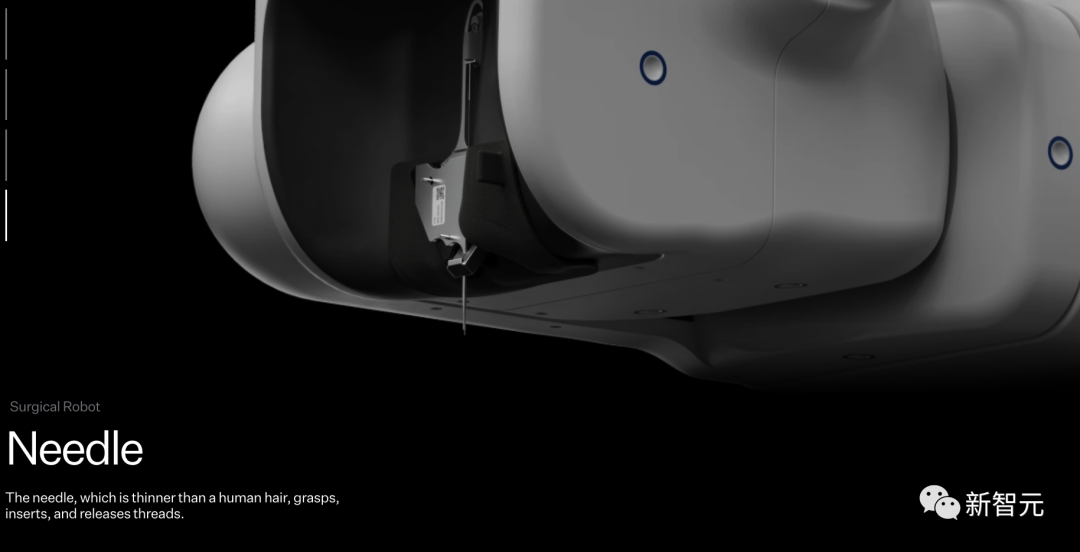
Recruitment requirements
According to Neuralink’s introduction, the recruitment targets for this human trial are mainly for Patients with quadriplegia due to spinal cord injury (limitation of spinal cord function) or amyotrophic lateral sclerosis (ALS) who show no signs of improvement for at least 1 year after the injury
Requirements The conditions are that you must be at least 22 years old, and you need stable and reliable caregivers to provide assistance in daily life
Unfortunately, Neuralink does not allow the following patients to participate in the trial:
The content that needs to be rewritten is: the presence of activated implanted devices (such as pacemakers, deep brain stimulation, etc.)
- Having epilepsy History of seizures
- Required MRI due to chronic illness
- Currently undergoing transcranial magnetic stimulation (TMS) treatment
Time Requirements
This project is expected to take 6 years to complete
During the study period, patients will be regularly Receive follow-up visits from Neuralink’s expert team to monitor patient progress and ensure that the Neuralink brain-computer interface continues to function as expected.
The duration of the primary study is approximately 18 months and includes 9 home and face-to-face clinic visits
During the study period, patients will be required to participate in brain Research sessions on the machine interface, at least 2 times a week, 1 hour each time
Long-term follow-up begins immediately after the completion of the primary study and lasts for 5 years, with a total of 20 sessions.
During the trial, Neuralink will pay for patients to participate in related activities.
Neuralink Progress Review
At the Neuralink conference at the end of last year, Musk showed the team’s recent progress.
The most impressive thing was a video played at that time. In the video, a monkey started typing through a brain-computer interface implanted in the brain and successfully typed a sentence.

In order to prove the complete safety of the brain-computer interface device, Neuralink displayed three pigs at the press conference, each of which was named Joey. Silk, Dorothy, and Gertrude
Joyce never had electrodes installed, Dorothy had electrodes installed but later removed, and Gertrude An implanted electrode device was installed two months ago, and it can still read very clear signals
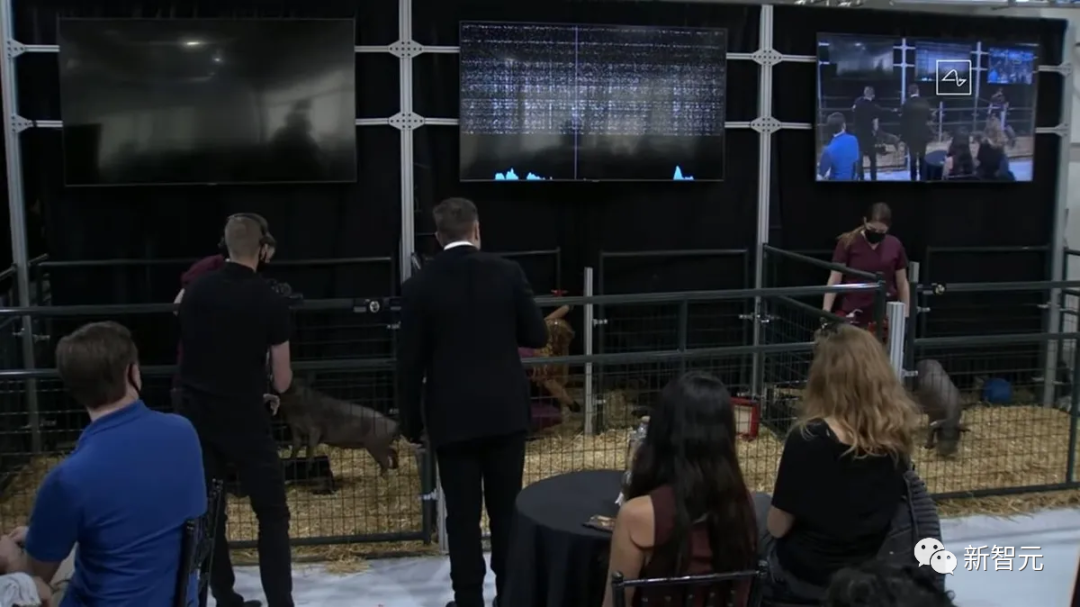
Musk repeatedly emphasized: 3 Every pig is healthy and happy, and the purpose is to show that the product is reliable and safe.
It wasn’t until May this year that Neuralink received FDA permission to conduct human trials.
In early September, in the face of online rumors about Neuralink’s statement that 15 monkeys died in a brain-computer interface experiment, Boss Ma personally clarified: No monkey died due to implant surgery of.
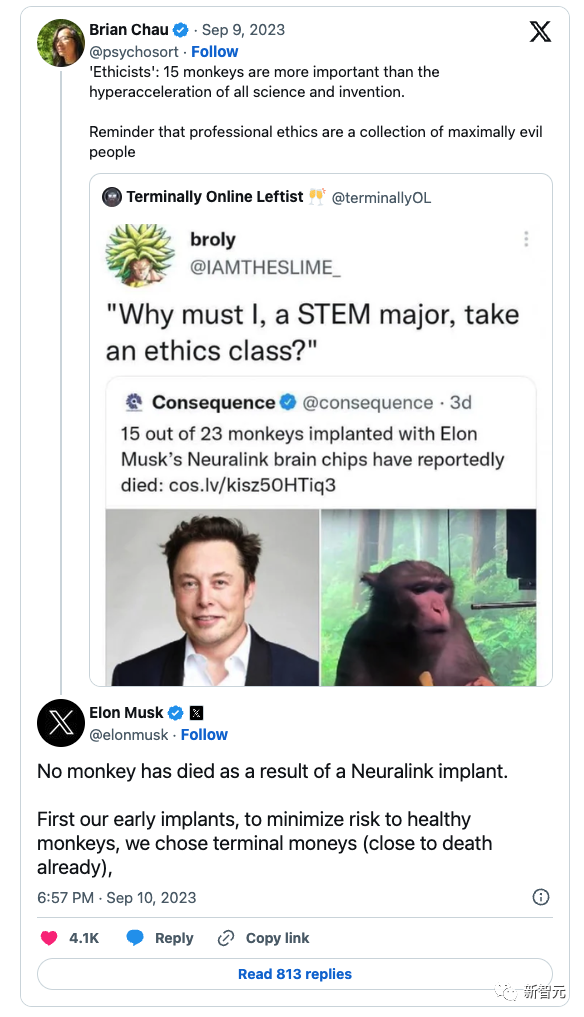
The above is the detailed content of Musk announced the news: Neuralink is undergoing human trials for the first time, which may help patients with ALS realize their wish to 'become Hawking in seconds'. For more information, please follow other related articles on the PHP Chinese website!

Hot AI Tools

Undresser.AI Undress
AI-powered app for creating realistic nude photos

AI Clothes Remover
Online AI tool for removing clothes from photos.

Undress AI Tool
Undress images for free

Clothoff.io
AI clothes remover

Video Face Swap
Swap faces in any video effortlessly with our completely free AI face swap tool!

Hot Article

Hot Tools

Notepad++7.3.1
Easy-to-use and free code editor

SublimeText3 Chinese version
Chinese version, very easy to use

Zend Studio 13.0.1
Powerful PHP integrated development environment

Dreamweaver CS6
Visual web development tools

SublimeText3 Mac version
God-level code editing software (SublimeText3)

Hot Topics
 1655
1655
 14
14
 1414
1414
 52
52
 1307
1307
 25
25
 1255
1255
 29
29
 1228
1228
 24
24
 Open source! Beyond ZoeDepth! DepthFM: Fast and accurate monocular depth estimation!
Apr 03, 2024 pm 12:04 PM
Open source! Beyond ZoeDepth! DepthFM: Fast and accurate monocular depth estimation!
Apr 03, 2024 pm 12:04 PM
0.What does this article do? We propose DepthFM: a versatile and fast state-of-the-art generative monocular depth estimation model. In addition to traditional depth estimation tasks, DepthFM also demonstrates state-of-the-art capabilities in downstream tasks such as depth inpainting. DepthFM is efficient and can synthesize depth maps within a few inference steps. Let’s read about this work together ~ 1. Paper information title: DepthFM: FastMonocularDepthEstimationwithFlowMatching Author: MingGui, JohannesS.Fischer, UlrichPrestel, PingchuanMa, Dmytr
 The world's most powerful open source MoE model is here, with Chinese capabilities comparable to GPT-4, and the price is only nearly one percent of GPT-4-Turbo
May 07, 2024 pm 04:13 PM
The world's most powerful open source MoE model is here, with Chinese capabilities comparable to GPT-4, and the price is only nearly one percent of GPT-4-Turbo
May 07, 2024 pm 04:13 PM
Imagine an artificial intelligence model that not only has the ability to surpass traditional computing, but also achieves more efficient performance at a lower cost. This is not science fiction, DeepSeek-V2[1], the world’s most powerful open source MoE model is here. DeepSeek-V2 is a powerful mixture of experts (MoE) language model with the characteristics of economical training and efficient inference. It consists of 236B parameters, 21B of which are used to activate each marker. Compared with DeepSeek67B, DeepSeek-V2 has stronger performance, while saving 42.5% of training costs, reducing KV cache by 93.3%, and increasing the maximum generation throughput to 5.76 times. DeepSeek is a company exploring general artificial intelligence
 AI subverts mathematical research! Fields Medal winner and Chinese-American mathematician led 11 top-ranked papers | Liked by Terence Tao
Apr 09, 2024 am 11:52 AM
AI subverts mathematical research! Fields Medal winner and Chinese-American mathematician led 11 top-ranked papers | Liked by Terence Tao
Apr 09, 2024 am 11:52 AM
AI is indeed changing mathematics. Recently, Tao Zhexuan, who has been paying close attention to this issue, forwarded the latest issue of "Bulletin of the American Mathematical Society" (Bulletin of the American Mathematical Society). Focusing on the topic "Will machines change mathematics?", many mathematicians expressed their opinions. The whole process was full of sparks, hardcore and exciting. The author has a strong lineup, including Fields Medal winner Akshay Venkatesh, Chinese mathematician Zheng Lejun, NYU computer scientist Ernest Davis and many other well-known scholars in the industry. The world of AI has changed dramatically. You know, many of these articles were submitted a year ago.
 KAN, which replaces MLP, has been extended to convolution by open source projects
Jun 01, 2024 pm 10:03 PM
KAN, which replaces MLP, has been extended to convolution by open source projects
Jun 01, 2024 pm 10:03 PM
Earlier this month, researchers from MIT and other institutions proposed a very promising alternative to MLP - KAN. KAN outperforms MLP in terms of accuracy and interpretability. And it can outperform MLP running with a larger number of parameters with a very small number of parameters. For example, the authors stated that they used KAN to reproduce DeepMind's results with a smaller network and a higher degree of automation. Specifically, DeepMind's MLP has about 300,000 parameters, while KAN only has about 200 parameters. KAN has a strong mathematical foundation like MLP. MLP is based on the universal approximation theorem, while KAN is based on the Kolmogorov-Arnold representation theorem. As shown in the figure below, KAN has
 Hello, electric Atlas! Boston Dynamics robot comes back to life, 180-degree weird moves scare Musk
Apr 18, 2024 pm 07:58 PM
Hello, electric Atlas! Boston Dynamics robot comes back to life, 180-degree weird moves scare Musk
Apr 18, 2024 pm 07:58 PM
Boston Dynamics Atlas officially enters the era of electric robots! Yesterday, the hydraulic Atlas just "tearfully" withdrew from the stage of history. Today, Boston Dynamics announced that the electric Atlas is on the job. It seems that in the field of commercial humanoid robots, Boston Dynamics is determined to compete with Tesla. After the new video was released, it had already been viewed by more than one million people in just ten hours. The old people leave and new roles appear. This is a historical necessity. There is no doubt that this year is the explosive year of humanoid robots. Netizens commented: The advancement of robots has made this year's opening ceremony look like a human, and the degree of freedom is far greater than that of humans. But is this really not a horror movie? At the beginning of the video, Atlas is lying calmly on the ground, seemingly on his back. What follows is jaw-dropping
 Slow Cellular Data Internet Speeds on iPhone: Fixes
May 03, 2024 pm 09:01 PM
Slow Cellular Data Internet Speeds on iPhone: Fixes
May 03, 2024 pm 09:01 PM
Facing lag, slow mobile data connection on iPhone? Typically, the strength of cellular internet on your phone depends on several factors such as region, cellular network type, roaming type, etc. There are some things you can do to get a faster, more reliable cellular Internet connection. Fix 1 – Force Restart iPhone Sometimes, force restarting your device just resets a lot of things, including the cellular connection. Step 1 – Just press the volume up key once and release. Next, press the Volume Down key and release it again. Step 2 – The next part of the process is to hold the button on the right side. Let the iPhone finish restarting. Enable cellular data and check network speed. Check again Fix 2 – Change data mode While 5G offers better network speeds, it works better when the signal is weaker
 Tesla robots work in factories, Musk: The degree of freedom of hands will reach 22 this year!
May 06, 2024 pm 04:13 PM
Tesla robots work in factories, Musk: The degree of freedom of hands will reach 22 this year!
May 06, 2024 pm 04:13 PM
The latest video of Tesla's robot Optimus is released, and it can already work in the factory. At normal speed, it sorts batteries (Tesla's 4680 batteries) like this: The official also released what it looks like at 20x speed - on a small "workstation", picking and picking and picking: This time it is released One of the highlights of the video is that Optimus completes this work in the factory, completely autonomously, without human intervention throughout the process. And from the perspective of Optimus, it can also pick up and place the crooked battery, focusing on automatic error correction: Regarding Optimus's hand, NVIDIA scientist Jim Fan gave a high evaluation: Optimus's hand is the world's five-fingered robot. One of the most dexterous. Its hands are not only tactile
 The latest from Oxford University! Mickey: 2D image matching in 3D SOTA! (CVPR\'24)
Apr 23, 2024 pm 01:20 PM
The latest from Oxford University! Mickey: 2D image matching in 3D SOTA! (CVPR\'24)
Apr 23, 2024 pm 01:20 PM
Project link written in front: https://nianticlabs.github.io/mickey/ Given two pictures, the camera pose between them can be estimated by establishing the correspondence between the pictures. Typically, these correspondences are 2D to 2D, and our estimated poses are scale-indeterminate. Some applications, such as instant augmented reality anytime, anywhere, require pose estimation of scale metrics, so they rely on external depth estimators to recover scale. This paper proposes MicKey, a keypoint matching process capable of predicting metric correspondences in 3D camera space. By learning 3D coordinate matching across images, we are able to infer metric relative



